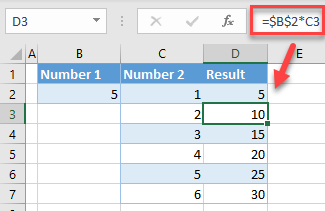SAN FRANCISCO, may additionally 7 (Reuters) – some of the younger generation security corporations are losing entry to the largest series of industry evaluations of computer viruses, a setback industry experts say will grow publicity to hackers.
The policy alternative at the information-sharing pioneer Virus Total focuses on a new generation of safety businesses, some with $1 billion or more valuations that haven’t contributed to their evaluation. Older companies, some with market valuations much smaller than the upstart opponents, had pressed for the shift.

Alphabet Inc.’s Google runs the Virus Total database so safety specialists can calculate the percentage of new examples of suspected malicious software and critique the chance they pose. On Wednesday, the 12-year-old carrier quietly stated it would reduce unlimited ratings to get the right of entry to the groups that do not percentage their reviews of submitted samples.
Analysts and bosses at several organizations stated the adjustments would leave some offerings more likely to mistakenly classify legitimate software programs as malicious and less capable of protecting their customers from real threats, at least in the brief term.
“If they do not have access to Virus Total, their detection ratings will drop,” stated Andreas Marx, chief govt of safety software program evaluation company AV-take a Look. With detection prices down, hackers will locate the easier entry.
Some security corporations rely completely on the database, essentially freeloading, stated executives on both sides of the divide. They did not need to share their analysis to worry about being located out.
Virus Total did not name any businesses to be cut off. However, numerous people familiar with the matter told Reuters the move would affect high-profile California firms Cylance Inc., Palo Alto Networks Inc., Crowd Strike Inc., and some smaller businesses.
Cylance said it gave up on getting admission to the rankings two weeks ago after figuring out now not to percentage its technology. Chief Research Officer Jon Miller said Cylance no longer suffered, but others did.
“Many next-era products are simply not functioning right now,” he said, declining to mention which. He said Virus Total’s loss might want to spur the agencies to spend money on their innovation to trap viruses.
When requested whether or not it had been kicked off the provider, Palo Alto said most effectively that it would no longer be counting on the virus’s total peer determinations and predicted “no impact” on customers.
Crowd Strike stated it became negotiating with Virus Total and had no longer been cut off with the aid of Saturday. “We help the task of Virus Total and feature reached out to them to discover additional ways we can collaborate for the benefit of the whole protection community,” the organization wrote in an emailed assertion, declining to reply to similar questions.
READ MORE :
- Raid on pirated software scores big
- Oman to showcase its tourism vision at Arabian Travel Market in Dubai
- Tom Clancy’s The Division UK release date, price, gameplay, and more – Cheaters will be banned
- Western Alliance Bancorporation (WAL) Price Target Increased to $42.50 by Analysts at Piper Jaffray
- Kingdom Come: Deliverance UK release date, pricing, and gameplay rumors: Deliverance sets itself apart from other RPGs by being historically accurate.
‘A SHORTCUT’
Virus Total gets about four hundred 000 submissions of probably dangerous documents daily, usually from antique-shield antivirus groups like Symantec Corp, Intel Corp, and Fashion Micro Inc which take a seat at the maximum machines.
“It changed into by no means meant to permit new agencies to use it as a shortcut through silently counting on, and benefitting from, the service without a corresponding investment,” said trend Micro chief era Officer Raimund Genes, one among many vantage-line tech executives who pushed for the shift.
Marx of AV-test said that some newer agencies secretly trusted data provided by way of older organizations simultaneously as marketing themselves as a cut above the older generation. “They may be using conventional methods, too,” he said.
Some newer businesses stated they do not proportion their evaluations for competitive reasons. Blanket copying of virus signs has been a historical criticism at Virus Total, with at least one victim resorting to sabotage in retaliation; Reuters mentioned ultimate 12 months. (http://www.reuters.com/article/us-kaspersky-opponents-idUSKCN0QX2GO20150828)
Others say they hit upon horrific programs that are too intensive to integrate with Virus Total’s modern device.
“We were more than inclined to paint with them, but they did not have a manner for us,” said Tomer Weingarten, leader executive of Sentinel One, a company that recognizes it becomes cut off from the feed in opposition to its will. “This is a step returned,” Weingarten said. SentinelOne had delivered a new statistics feed to replace Virus Total and expected Virus Total to become less applicable as groups are excluded.
Through a Google spokeswoman, Virus Total stated it turned into seeking to act within the fine interest of the security community, and it was hoping to help corporations integrate their scanners into the Virus Total platform. (enhancing through Peter Henderson and Mary Milliken)





